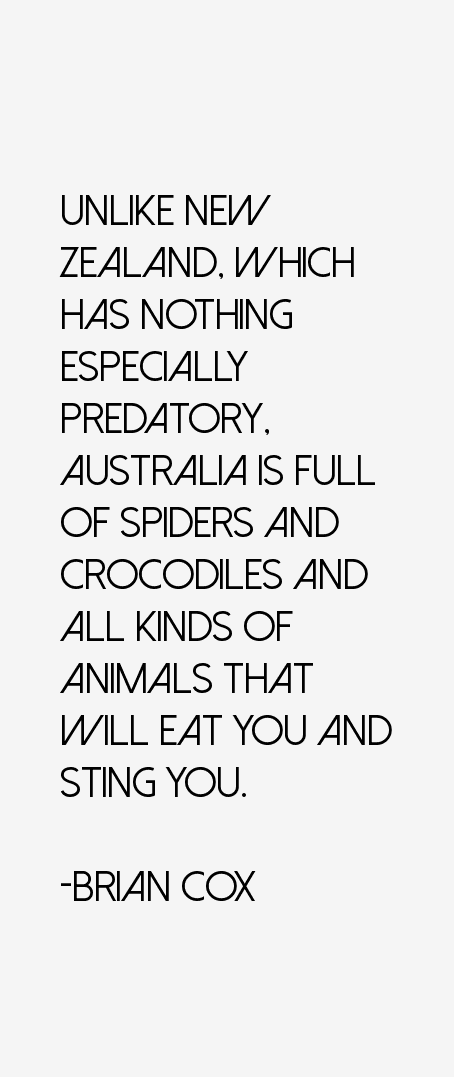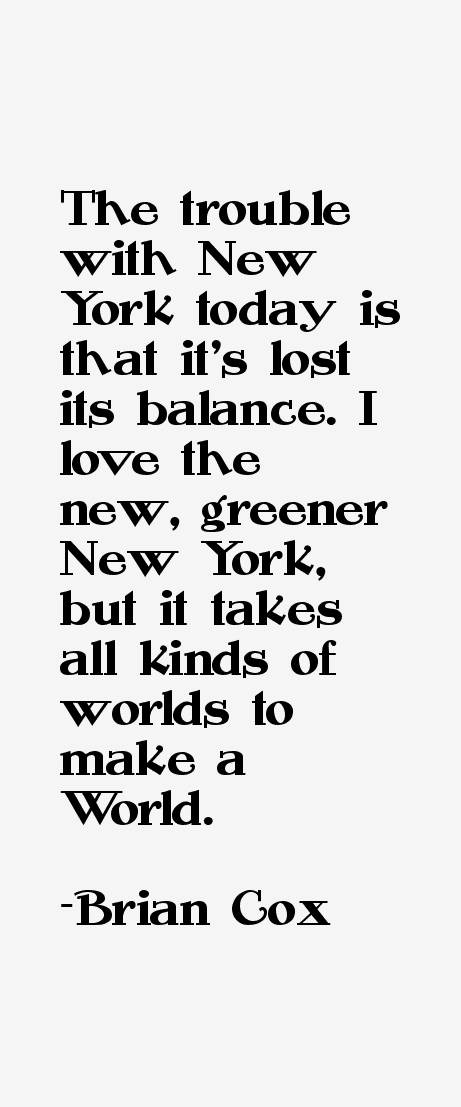Brian Cox Quotes & Sayings
31 most famous Brian Cox quotes and sayings. These are the first 10 quotes we have for him. He's a 79 year old Scottish actor born on Jun 1, 1946.
“Feudal societies don't create great cinema; we have great theatre. The egalitarian societies create great cinema. The Americans, the French. Because equality is sort of what the cinema deals with. It deals with stories which don't fall into 'Everybody in their place and who's who,' and all that. But the theatre's full of that.”
“My mother Molly had a nervous breakdown after my father Chic died, aged 50. He was a very generous man who ran a shop in Dundee giving a lot of people tick. When he died, a lot of people hadn't paid their bills, so he died with a lot of debt. After he died, my mother went doolally.”

“Unlike New Zealand, which has nothing especially predatory, Australia is full of spiders and crocodiles and all kinds of animals that will eat you and sting you.”
“Even the Australians don't know how beautiful their own country is. Particularly where we were shooting 'The Straits.' Most of my stuff was done on an aboriginal settlement on the south shore, opposite Cairns, which I believe was the site where the last person was eaten in Australia.”
“The hardest thing to do in movies is be a day-part player. You have to go in, make your mark, and get out. There's a lot of leading actors who are not good for a lot of a movie, and then suddenly they have good moments, and they're like stepping-stones across a particularly feisty stream. They build careers out of that.”
“There are characters that have made me uncomfortable. I did a film called 'Rob Roy,' and I played Killearn, who was this sort of greasy fallen-angel character who was voyeuristic and sleazy and really unpleasant. It was a great role, but I didn't especially enjoy living with this awful man for the length of time it took to make the movie.”

“The trouble with New York today is that it's lost its balance. I love the new, greener New York, but it takes all kinds of worlds to make a World.”
“Charles Laughton, who's a great hero of mine, only ever made one film and it happens to be one of the great films ever, which is 'The Night of the Hunter.' It's full of his kind of imagination and creation and how you do things and just in the way he used the studio, I just thought it was a fantastical way of using the studio.”
“Ah, there's a director. Astonishing, Spike Lee. A feisty guy, but a guy who's, I think, incredibly misunderstood. I think people review his politics or his color as opposed to his filmmaking sometimes. Because he's a wonderful, wonderful filmmaker and a lover of the art.”
“In a sense I feel very much a part of the cinema now in a way where when I come back to the theater now I feel like a visitor. The cinema is really what I enjoy. I want to do more independent movies.”
Brian Cox Quotes Rating
No Ratings Yet
Leave A Comment
























